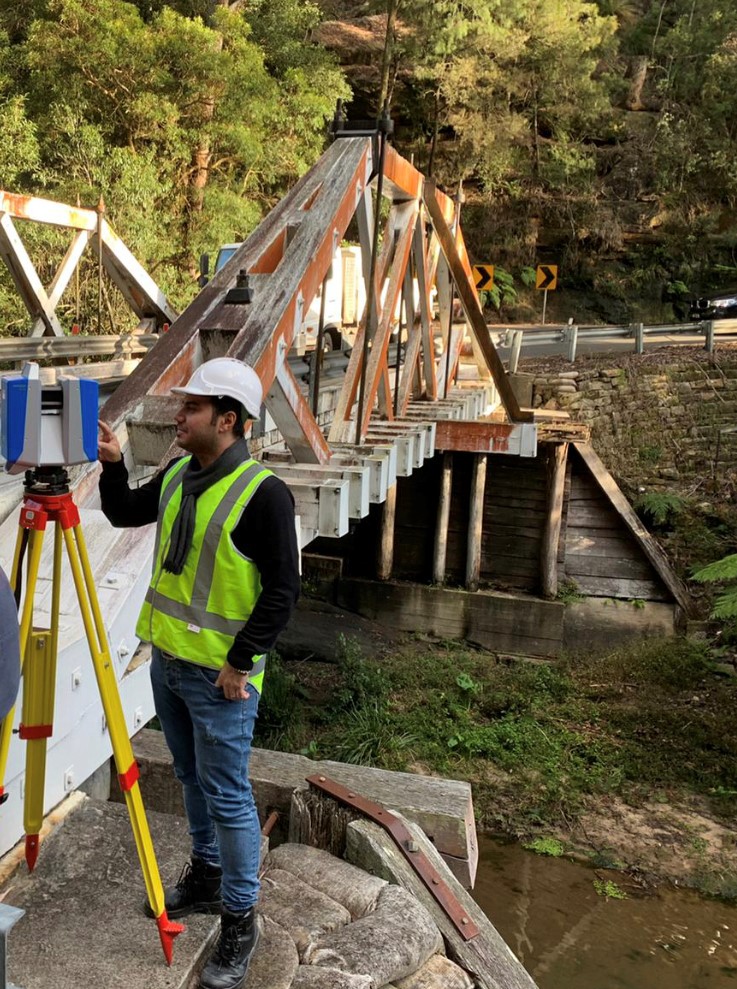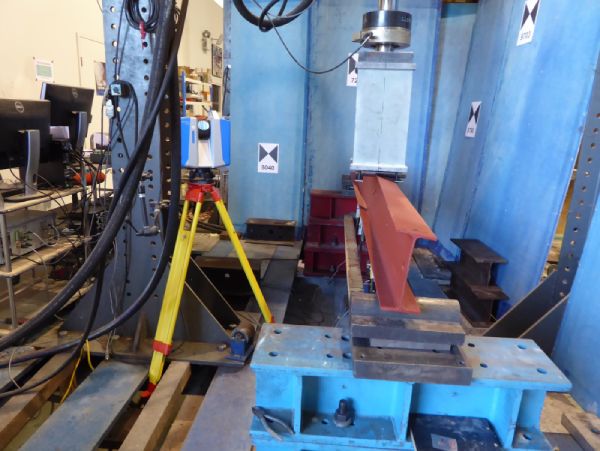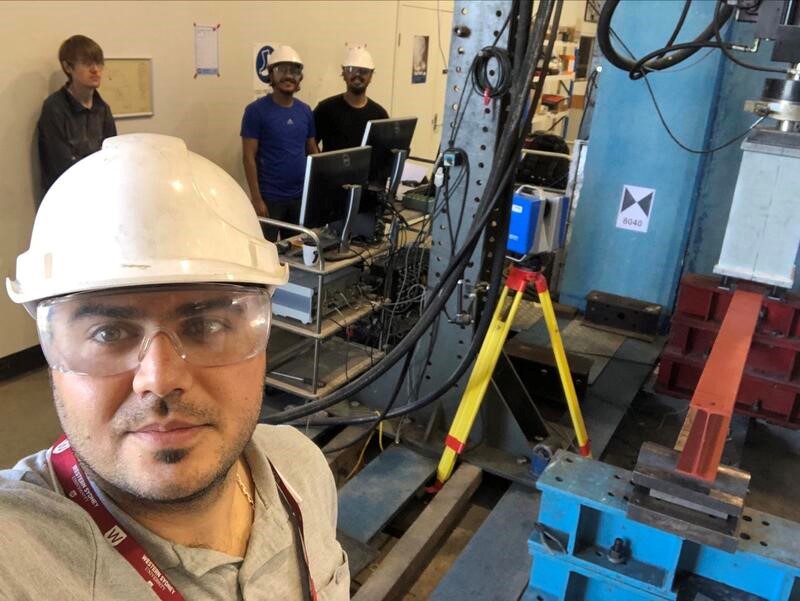Masoud Mohammadi, a senior researcher of the Structural Assessment and Health Monitoring (SAHM) research group, led by Dr. Maria Rashidi at the Centre for Infrastructure Engineering (CIE), at Western Sydney University is collaborating with TfNSW on health monitoring of some state bridges across New South Wales.
Mr Mohammadi and his team purchased the Z+F Imager 5016 3D Laser Scanner from Aptella because this instrument most reliably met the univeristy’s requirements and provided the highest quality results.
The university completed stringent research before deciding to purchase the Z+F Imager 5016 3D Laser Scanner, as is the case with all special equipment purchases made by the university. The instrument needed to meet several requirements, including: cost of the instrument, local supports and services, compatible software with strong analysis capacities, and most importantly high-quality results.
“According to our preliminary study, Z+F imager 5016 showed more reliable satisfaction regarding our requirements than other brands to be selected and purchased by the university,” said Mr Mohammadi.
Implementing Z+F Imager 5016 increases safety and reduces costs
Mr Mohammadi noted that instruments like the Z+F Imager 5016 3D laser scanner are becoming increasingly popular for inspection, assessment, and management of civil infrastructures because these instruments increase safety while reducing long term costs.
“Advanced technologies, such as laser scanners, have become a suitable alternative for labour-intensive, expensive, and unsafe traditional inspection and maintenance methods, which encourage the increasing use of this technology in the construction industry,” said Mr Mohammadi.
“Besides having these advantages, Z+F imager 5016 possess several features in terms of filtering, state-of-art registration techniques, high-quality colourisation techniques and efficient workflow which truly differentiates this brand from others.”

The part service and support plays in purchasing decisions
Service and support plays an essential part of Mr Mohammadi’s decision making process when purchasing new instruments and also found the two day training session with Aptella to be very beneficial.
“A satisfactory customer service was an essential requirement for us to purchase such a costly instrument. Previous acquaintance with the Aptella team and their positive/constructive supports were highly considered in our decision,” said Mr Mohammadi.
About SAHM at Western Sydney University
Centre for Infrastructure Engineering (CIE) at Western Sydney University is a world-class unit with state-of-the-art facilities at the leading edge of advanced civil infrastructure technologies. Structural Assessment and Health Monitoring (SAHM) research group at CIE has professional and dedicated team members with a strong theoretical background and practical expertise in asset management, structural control, health monitoring and rehabilitation planning, especially in bridge engineering.
SAHM was previously involved in several major state bridge projects concerning the digitisation and investigation works for upgrading and replacement of bridges such as McKanes Falls Bridge, Charleyong Bridge, etc in NSW, Australia. According to reputation of SAHM research group in the field of infrastructure monitoring using remote sensors, this research team has also been involved as part of editorial board of Remote Sensing Journal, one of the most prestigus journals with Impact factor of 4.5, SJR-Q1 in the field of advanced technologies.



Kami membangun bisnis dengan memberikan solusi teknologi konstruksi untuk meningkatkan produktivitas pelanggan kami.
PT Aptella Solusi Teknologi
NPWP: 70.620.776.8.017.000
2024 Aptella | NPWP: 70.620.776.8.017.000 | Terms and Conditions | Privacy Policy